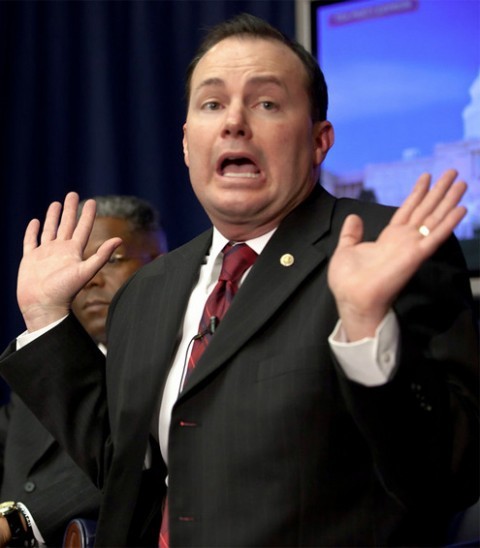
Late on October 7, as he suffered through the COVID-19 infection that he brought upon himself and forced upon the nation, Senator Mike Lee of Utah decided to tweet. Mike likes to tweet. In the past several weeks, he has tweeted at least three times a day and often goes beyond that number. On October 7, you could tell that Mike was on a roll.
After proudly announcing that Utah “consume[s] more Jello on a per capita basis than any state in the Union,” Mike, in a far briefer tweet, declared boldly, confidently that “we’re not a democracy.”
Mike is, unfortunately, correct. By almost any meaningful standard, the United States is at the least not a full democracy. On a superficial level, this is obvious. Neither Al Gore nor Hillary Clinton got to serve terms as President despite winning the popular vote. Senators representing 15 million fewer Americans somehow hold the “majority.” However, the problem goes even deeper than that. Research has shown, repeatedly, that “the preferences of the average American appear to have only a minuscule, near-zero, statistically non-significant impact upon public policy.” In fact, the interests predominantly represented in public policy decision-making are directly opposed to the public’s opinions. Americans get policy outcomes they insofar as they happen to align with the interests of economic elites.
So yes, Mike was right; we are not a democracy. He was not right when he said that’s a good thing. Now, none of this should be surprising coming from Mike. The public probably had enough information to determine what grade reading level the honorable Senator is on when he proposed “fall[ing] in love” as the solution to the coming climate catastrophe. Which, by the way, will cause hundreds of thousands, if not millions, of people across the world to die agonizing deaths.
Mike’s Senate colleagues dishearteningly, but informatively, did not denounce a sitting US Senator for announcing his open contempt for the voters. Instead, they continued working to confirm a judge with incredibly unpopular policy views to a lifetime appointment. It was par for the course; what more could you expect from the party that is less the Republican Party and more the anti-Democratic Party?
The case for democracy should be clear enough. After all, if, like Mike, you are an opponent of democracy, you have to be prepared to accept the alternative to being in charge: being the one who gets tread on. If we were in term six of President-for-Life Hillary Clinton’s administration, no doubt Mike would be calling for the “will of the people” to be heard and vote her out of office.
Furthermore, upholding democracy ought to come before any policy goal. Allowing people the right to control their own fates, shape their own communities, and express their own opinions is in-and-of itself a good thing. Mike “want[s] the human condition to flourish” but only by his terms. Instead, real human flourishing requires that we allow people autonomy in their own lives and the right to decide how they want to flourish.
These are the basic stakes of American politics. On one hand, there is an imperfect Democratic Party coming to terms with the absolute political and social necessity of finally realizing the nation’s democratic dreams. Opposed lies the Republican Party which, having seemingly entered terminal intellectual decline under Trump, has finally, explicitly embraced the reality that they are not interested in governing for all Americans.


